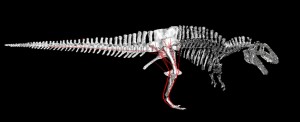From The Economist article:
WHILE watching the finale of the Formula One grand-prix season on television last weekend, your correspondent could not help thinking how Darwinian motor racing has become. Each year, the FIA, the international motor sport’s governing body, sets new design rules in a bid to slow the cars down, so as to increase the amount of overtaking during a race—and thereby make the event more interesting to spectators and television viewers alike. The aim, of course, is to keep the admission and television fees rolling in. Over the course of a season, Formula One racing attracts a bigger audience around the world than any other sport.
Read the full article here.


